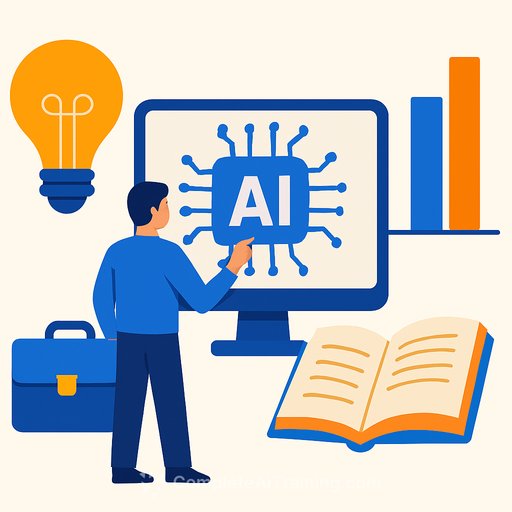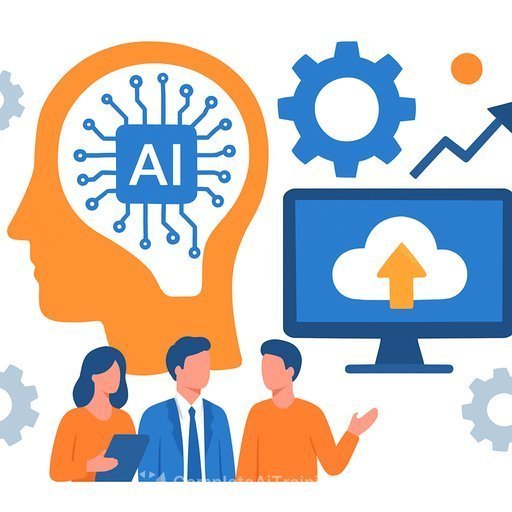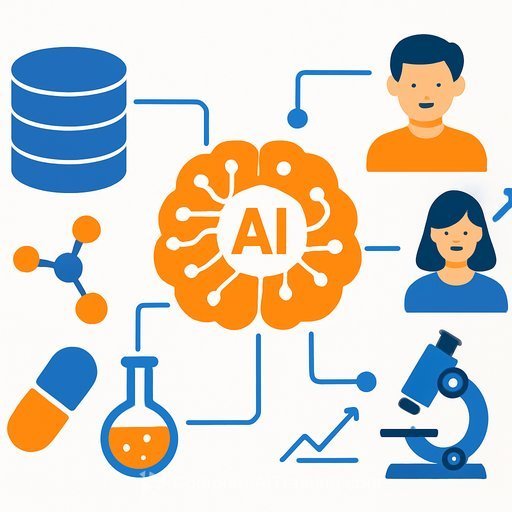Top College Degrees That Lead to High-Paying AI Careers
If you work in science or research, the AI job market is tilting in your favor. The biggest wage gains since 2022 have flowed to workers in AI-exposed roles, with median salaries above $135,000 for core positions. The pattern is clear: math and computer science matter most-paired with genuine expertise in a specific field.
As one AI professor put it, the winning mix is knowing AI well enough to avoid basic mistakes while having real depth in a domain. Translation: don't just learn models-learn where to apply them.
Key takeaways
- Prioritize math, probability, and computer science-your major title matters less than your skill stack.
- Pair AI literacy with a domain (neuroscience, design, economics, robotics, philosophy) to become hard to replace.
- Internships, research, and production-quality code will beat a higher GPA with no real work.
- When choosing programs, judge by internships, research access, and job outcomes-not marketing.
Why your major matters (but less than you think)
Employers hire for skills: linear algebra, statistics, optimization, algorithms, and the ability to ship. Your degree is a vehicle for those skills and a signal of domain expertise. Aim for the combo that lets you build models, reason about data, and apply both to meaningful problems.
That's why a bioengineer who codes well can be more valuable than a generic ML major who can't ship. Depth beats buzzwords.
Degrees that signal AI readiness
- Computer Science: Algorithms, systems, distributed computing, and solid software engineering.
- Data Science / Statistics: Probability, inference, causal thinking, experimental design.
- Mathematics / Applied Math: Linear algebra, optimization, numerical methods-core to modern ML.
- Electrical/Computer Engineering: Hardware, embedded systems, signal processing, robotics.
- Robotics / Mechatronics: Perception, control, reinforcement learning, real-world constraints.
- Cognitive Science / Neuroscience: Learning theories, perception, human-AI interaction.
- Linguistics: Syntax, semantics, pragmatics-useful for LLM evaluation and tooling.
- Design (HCI, Product, UX): Interface, feedback, safety-by-design, model explainability for end users.
- Economics / Philosophy: Causality, incentives, policy, ethics, and risk-growing needs in AI deployment.
Pick one technical core plus one domain. That pairing makes your work useful-and hires obvious.
The skills most applicants forget
Many programs teach theory but skip the work that gets you hired. Don't make that mistake.
- Production-grade software: Clean code, testing, version control, CI/CD, containerization.
- Research operations: Reproducibility, experiment tracking, data provenance, documentation.
- MLOps basics: Data pipelines, evaluation, monitoring, model rollback, cost control.
- Communication: Explain trade-offs to non-technical leaders; write clear summaries; show impact.
- Risk and ethics: Privacy, bias, safety, auditability; spot failure modes early.
How to pick a program that actually delivers
- Internships and first jobs: Where do graduates land? Can you see real placement data?
- Serious coursework: Core math, algorithms, systems; not just trendy course titles.
- Research access: Labs with compute, datasets, and mentors who ship papers and tools.
- Industry pipelines: Partnerships, capstones with companies, open-source collaboration.
- Student work quality: Portfolios, GitHub, publications-evidence beats brochures.
Practical path for scientists and researchers
- Lock the fundamentals: Linear algebra, calculus, probability, statistics, and Python.
- Build projects that touch reality: Replicate a paper, then extend it on a tougher dataset.
- Ship something people use: A small internal tool, an evaluation harness, or a data pipeline.
- Publish or open-source: Share code and results; make it easy to reproduce.
- Get feedback from users: Scientists, clinicians, analysts-whoever feels the model's limits.
- Think career capital: Intern with strong teams; chase problems with visibility and mentorship.
Course and project stack (simple and effective)
- Core: Linear algebra, probability, algorithms, data structures, optimization.
- AI: ML, deep learning, NLP, reinforcement learning, evaluation methods.
- Systems: Databases, distributed systems, cloud compute, security basics.
- Domain: Pick one-bio, climate, robotics, economics, design, policy-and go deep.
- Proof: 2-3 projects with clean repos, tests, clear READMEs, and honest retrospectives.
If you want structured options to fill gaps fast, browse AI courses by skill here: Complete AI Training: Courses by Skill.
Salary and role outlook
Core research and engineering roles continue to pay well, especially for those who can turn research into production. For context on related roles, see the U.S. Bureau of Labor Statistics profile for Computer and Information Research Scientists: BLS occupational data.
Make it real: how to stand out in 90 days
- Pick a domain dataset you care about. Frame a clear question and baseline.
- Implement 2-3 methods (classic + modern). Track runs. Compare honestly.
- Productionize one path: API, small UI, or automated report.
- Write a short, clear report. Post code and results. Ask for external review.
- Apply where your portfolio is obviously useful to the team's problems.
Bottom line
Your degree is a starting point. What pays is the stack: math and CS fundamentals, domain depth, real projects, and the ability to explain trade-offs. Do that, and the AI market finds you.
Your membership also unlocks:






